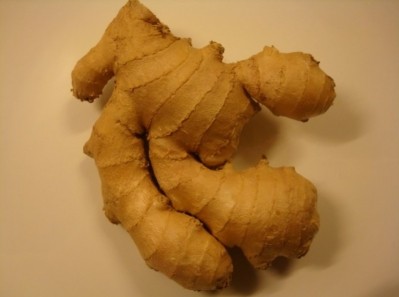Ginger extract shows positive role in alleviating chronic stomach pain

Functional dyspepsia (FD) is a common disorder characterized by a cluster of symptoms including epigastric pain, burning, and an uncomfortable sense of fullness. FD affects close to 20% of the global population, with no clear-cut conventional treatment but lifestyle-related factors are believed to contribute as well as dysfunction in the gut-associated nervous system.
The current randomised, double-blind, placebo-controlled clinical study was conducted at the Maharaja Agrasen Hospital, New Delhi, India, and included 57 participants suffering from FD. They were allocated either 200mg of ginger extract (Ginfort by DolCas Biotech), twice daily, or the equivalent dose in a dibasic calcium-inactive placebo for 4 weeks.
Overall treatment efficacy was rated on a seven-point Likert scale where subjects were asked to complete a weekly questionnaire. Nine functional dyspepsia related symptoms were assessed including upper abdominal pain, upper abdominal discomfort, postprandial fullness, upper abdominal bloating, early satiety, excessive belching, nausea, vomiting, and heartburn.
Results show that at two weeks into the trial, 41% of subjects in the treatment group reported a statistically significant positive response which was maintained throughout the trial period. Ginger extract supplementation was found to be effective in 79% of the subjects, while the placebo was found to be 21% effective. Moreover, responder rate in the ginger treated group was 58% higher than placebo group at Visit 4.
In an assessment at Week 4 of secondary efficacy endpoints, the collective elimination score for three major symptoms — postprandial fullness, upper abdominal bloating, and early satiation — was 64% for the treated subjects compared to 13% of the placebo group. Most of the nine individual symptoms also showed statistically significant rates of elimination over the placebo group.
Examination of blood labs and of vital signs determined Ginfort to be an effective and safe option for the treatment of FD.
Research background
Ginger has been used as traditional medicine since time immemorial and has been shown to be useful in the treatment of FD (Anh et al. 2020). Many studies in animals have demonstrated that ginger rhizome extracts increase gastric emptying and gastrointestinal transit.
Wu et al. showed that ginger accelerates gastric emptying and stimulates antral contractions in healthy human volunteers (Wu et al. 2008).
Nausea, vomiting and hypomotility involve a temporary dysfunction of the complex integrated network of cholinergic M3 and serotonergic 5-HT3/5-HT4 receptors in the body. In this respect, major chemical constituents of the ginger rhizome extracts,
such as -gingerol, -gingerol, -gingerol and -shogaol have been shown in several experimental models to modulate these receptors with a differentiated potency.
In particular, the capacity of ginger to reduce nausea and eventually vomiting seems to correlate with the effectiveness of these active ingredients to weakly inhibit M3 and 5-HT3 receptors.
A 2019 review on the role of ginger in gastrointestinal disorders provided recommendations for improving the evidence profile for ginger ingredients, establishing effective dose recommendations and optimizing ginger preparations to ensure stability and bioavailability of known ginger actives, specifically the volatile oils gingerols and shagaols.
Ginfort
Ginfort’s Aqueosome technology delivers 26% of active gingeroid compounds, including the gingerols and shagaols. Its proprietary solvent-free extraction process produces a powder from ginger oleoresin containing high concentrations of pure ginger polyphenols and essential oils in their native, naturally stable matrix.
This enables low clinical doses and less restrictive storage conditions and enhances the stability and bioavailability of the rhizome’s particularly volatile bioactives.
Source: Journal of Dietary Supplements
Panda. S. K., et al
"A Randomized, Double-Blind, Placebo Controlled, Parallel-Group, Comparative Clinical Study to Evaluate the Efficacy and Safety of OLNP-06 versus Placebo in Subjects with Functional Dyspepsia"






